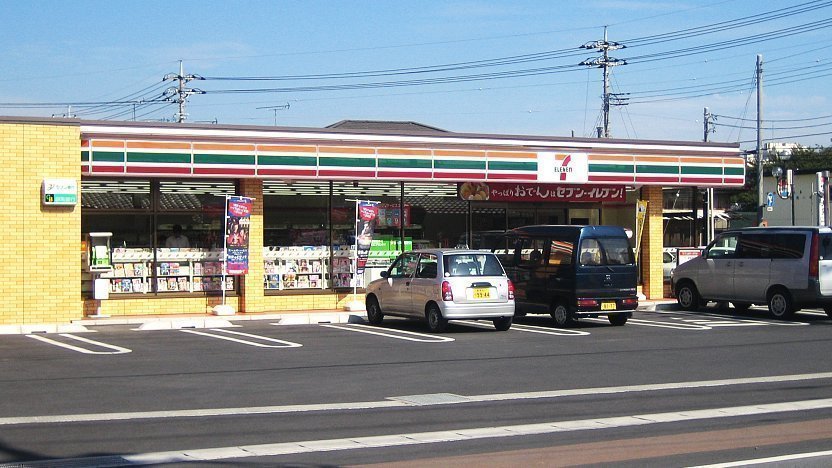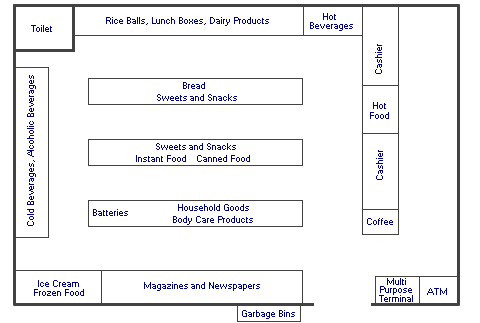Convenience Stores

More than 50,000 convenience stores, known as konbini, can be found across Japan. Strong competition between the major operators, such as Seven Eleven, Family Mart and Lawson, constantly produces new innovative products and services and makes Japanese convenience stores truly convenient. Most convenience stores are open 24 hours a day and 7 days a week.
Goods offered
Convenience stores primarily sell food, including a large range of meals, snacks and sweets, such as onigiri (rice balls), sandwiches, bread, chips, candy, obento (lunch boxes), instant ramen, microwave meals and hot foods like fried chicken, nikuman and oden. Dishes, such as onigiri, can also be heated up in the store.
All kinds of hot and cold beverages, including coffee, tea, water, soda, sport drinks, juice, milk and vitamin drinks are also sold. The selection changes frequently and often varies by season. Most convenience stores also sell alcoholic beverages, including beer, sake, shochu and wine.
Other goods available include body care products, cosmetics, batteries, umbrellas, magazines and manga. Some stores, particularly outside of the city centers, have a toilet.
Services offered
Convenience stores also offer a wide range of services, many of which can be accessed through automated multi-purpose terminals:
- Multi-purpose terminals: Tickets for sport events, concerts, theme parks, highway buses and other travel services can be purchased at the multi-purpose terminal which often also serve as copy machine and fax. Unfortunately, most terminals have no or only very limited English user interfaces.
- ATM: ATMs offer cash withdrawl and other banking services. Foreign credit and debit cards are accepted by ATMs at an increasing number of convenience stores. All ATMs at 7-Eleven stores accept foreign cards.
- Wi-Fi: Many stores maintain a Wi-Fi network that can be used for free.
- Bill payment: Many bills, including utility, cell phone and insurance bills, can be paid at convenience stores.
- Delivery services: At many stores, it is possible to drop off or pick up deliveries (takuhaibin), such as parcels or luggage. A limited range of postal services, such as the sale of post cards and stamps, is also available.
Below is a sample layout of a typical Japanese convenience store:

Questions? Ask in our forum.


